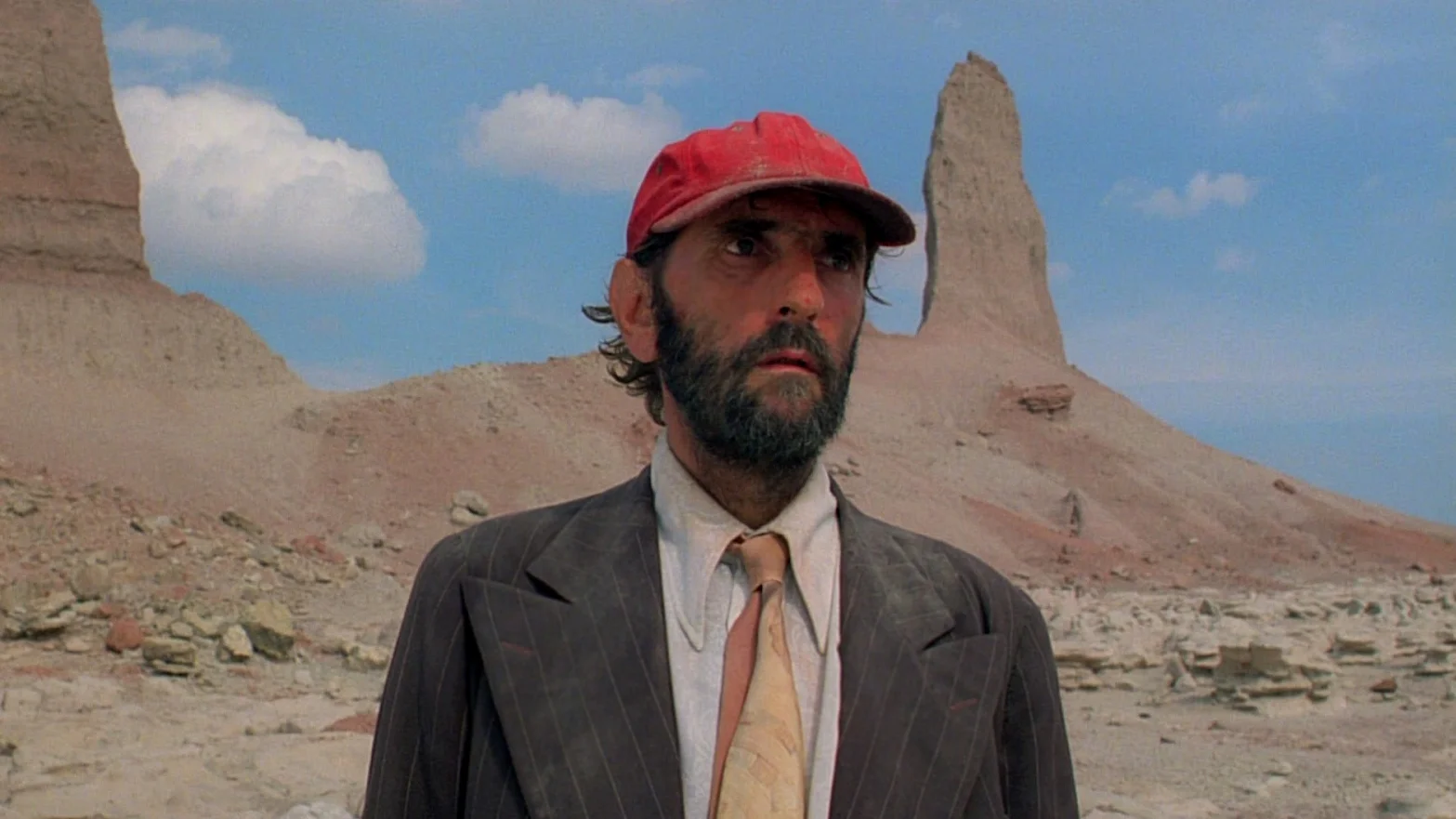Ridley Scott Says Goodbye to the Human Race in Alien: Covenant
“It’s too bad she won’t live, but then again who does?”
That line from Blade Runner might be the most oft-quoted line of dialogue from cinema’s science-fiction history. Certainly within the ranks of Hal’s misdeeds in 2001: A Space Odyssey and MacReady’s harsh self-criticisms of his own humanity in The Thing, Blade Runner’s conceptual, course-101 philosophizing liquefies in between the spaces of that very line, uttered by Drax as the clouds rain down with cleansing wisdom. It may not necessarily hand over an answer regarding Scott’s trademark ambiguity of character, but the moment provides a college freshman-type of euphoria; a stretch of formal and screenwriting simplicity which atomizes the root of believing in meaninglessness. Scott is practically beckoning you to look at your friend on the futon and go, “Whoa, man. Whoa.”
This is not to say that Scott is a garbage-bin theorist, but it unlatches various ponderings of auteur self-importance, and whether such searches should allow for ‘participation award’ narrative meat. Scott has never truly believed in his explorations; rather, he illuminates grand ideas in the cycle of repurposing thrills as consequences to them. Discovery, progress, and intuition in a Scott film — especially in sci-fi — typically concludes in a visceral, fiery blood-bath initialized via well-meaning intentions and spurts of human logic (this long, overarching trait in his filmography really places The Martian in the back corner by itself). By portraying humans as obsessives and pioneers chasing cosmic questions, Scott can evoke concepts which, as an atheist elude him, but still provide a pitch-black nihilism; a swirling terror of intent cascading into desolation. To search for anything is to put your present self, a body which is mortal and fragile, in danger of new experiences.
Scott’s artistic template has never detached itself from such a worldview, one compounded in his first three films: The Duellists, Alien, and Blade Runner. Any film of Scott’s can be linked back, traced via a general ingenuity of images, narrative propulsion, and implications of human nature. But the tenor has been molded with an indifference towards prosperity and expansion, its 'droplet in a water bucket’ influence leading towards a horizon of nothing. Ridley Scott — in a filmography of constant subversion, retooling like a mad scientist — has never abandoned his first ideas sent through a lens, a personal connection to the perspective in which he constructs visions of his own. It is why Alien: Covenant, the sixth installment in the Alien franchise and the third helmed by Scott, succeeds: it sings the same song in a new way, bubbling ancient potions and gnarly, depraved nihilistic tendencies together in a Hammer Horror laboratory, cackling as it devises a fresh angle on a tired corpse.
Alien: Covenant is not only determined to ruin any positive ethos of progression, it builds its downfall from modulating narrative twists. For a film strikingly similar to Prometheus in terms of basic plot structure, its dynamics are confined to colonization. With that flows sentiment, love, and compassion over logic, a nightmare conceived out of positive attributes. The demise of a human future due to the ‘creator’s creation’ allows for Scott to jump into his play box head-first. It is not as angry as it sounds (could an artist’s umpteenth treatise on the subject be so furious?), as the film enters the inevitable with a tear in the eye and a bittersweet smile. That doesn’t mean Alien: Covenant isn’t a murky, terrorizing anti-human parable, but Scott’s culminating ambiguity aligns its flavor closer to The Counselor than the original Alien.
The entire experience wears a mask over itself, faking sympathy to hide its true soul: the inner depths of the android David. Even grand gestures of sacrifice, as seen in the visually-arresting and bombastic finale, are miniscule in the face of humanity’s ineptness and oversight. Alien: Covenant displays a saddening, heartless evolution — from creator to the created to the creator — attuned to David’s objective. The monstrous becomes beautiful, the barren blossoms into fertility, the living falls into death’s embrace. To say the film is angry would be robbing it of its apathy and the destination of parodic apocalypse. Ridley Scott isn’t overjoyed to see the collapse of humanity’s meager struggles, but like David, his head cocks a little too much on either side when a head decapitates or a facehugger leaps towards the mouth of a faith-based captain.
By the film’s end, Ash’s quote on the xenomorph (“I admire its purity. A survivor…unclouded by conscience, remorse, or delusions of morality.”) provides as much emphasis for David as it does his monsters roaming corridors and passageways. Why should humans create if they only leave the mark of themselves, one which has been proven to be illogical, flawed, under-calculated and smitten with intangible ideas? Ridley Scott has made the final film of a Master Gothic Count in Alien: Covenant, as it fully embraces the jovial sweetness of our demise, the poetry of our end unfolded in vignettes of trial and error, and love in the face of danger. History repeats itself, and Ridley Scott, in this flawed spatter circus of darkness and blood, paints a picture of how the vicious cycle can only end in pain, by an antagonist of our own hand.















